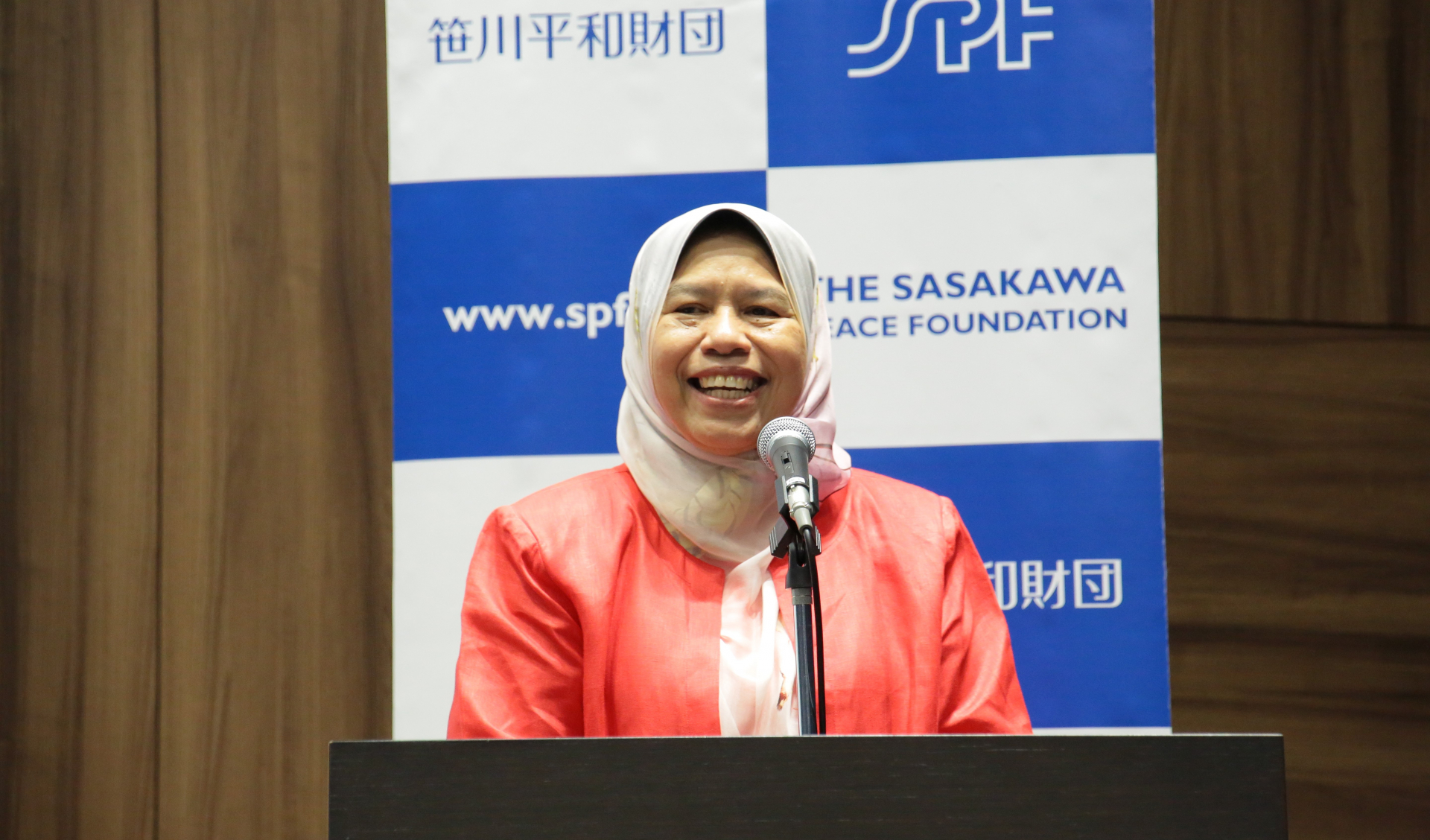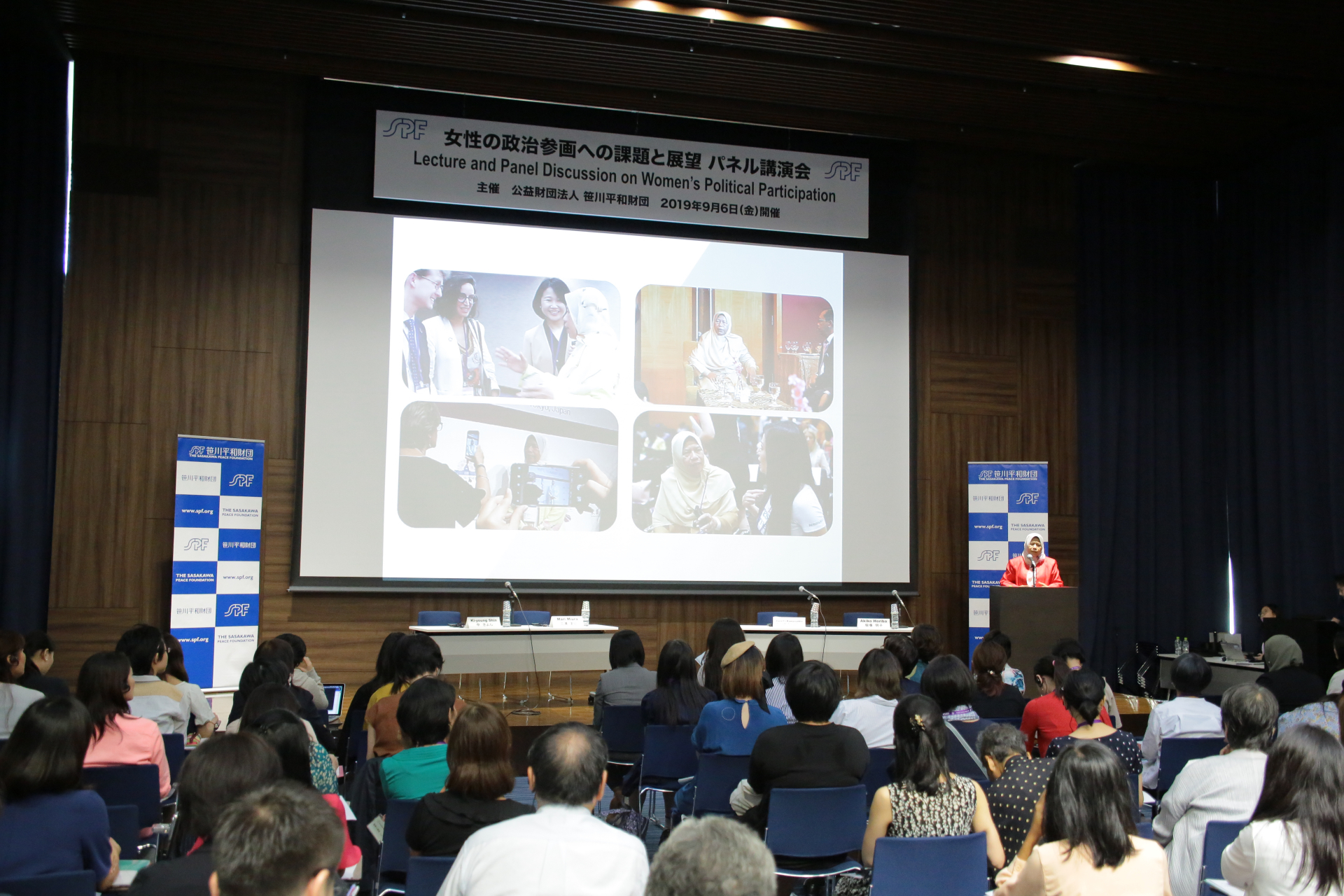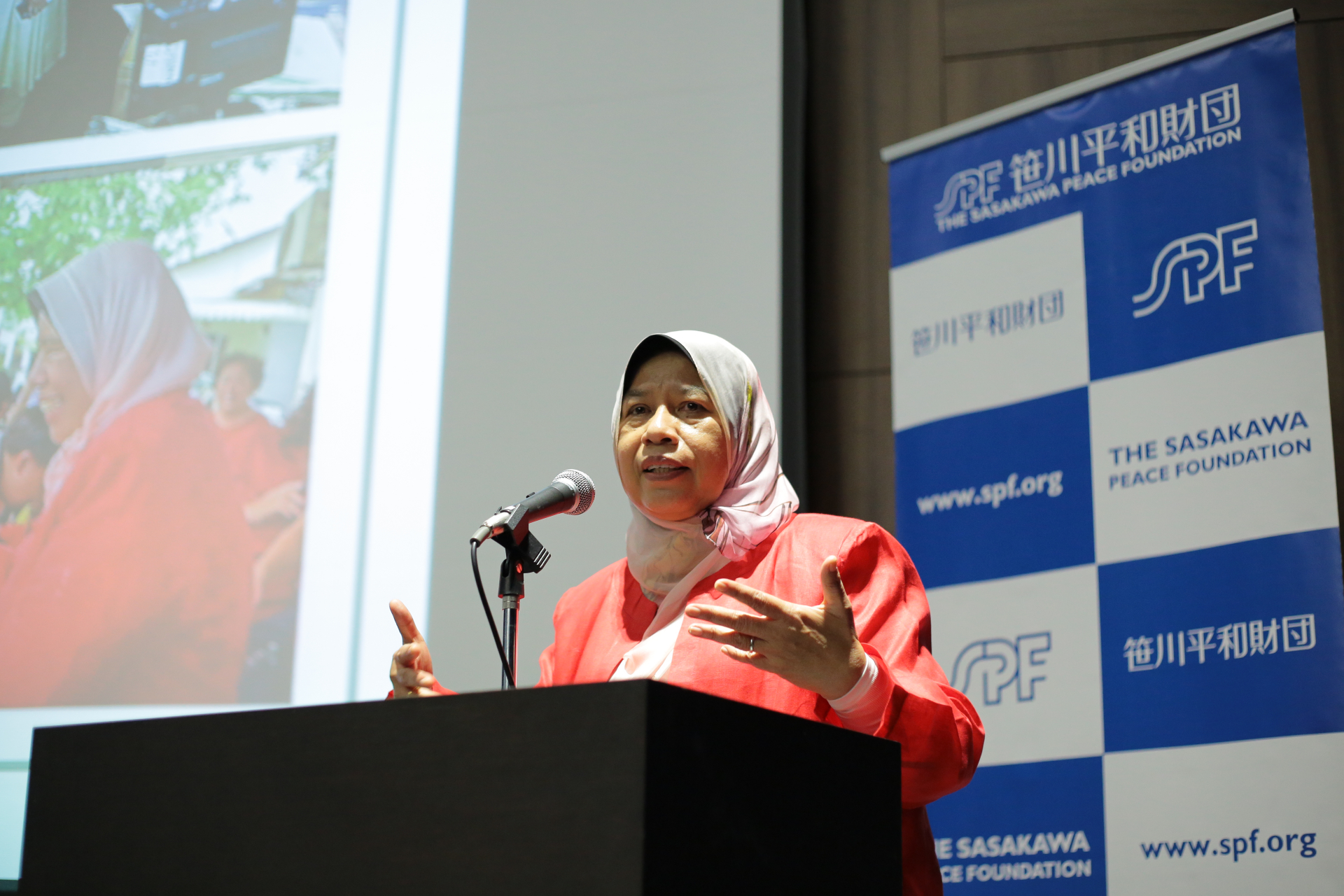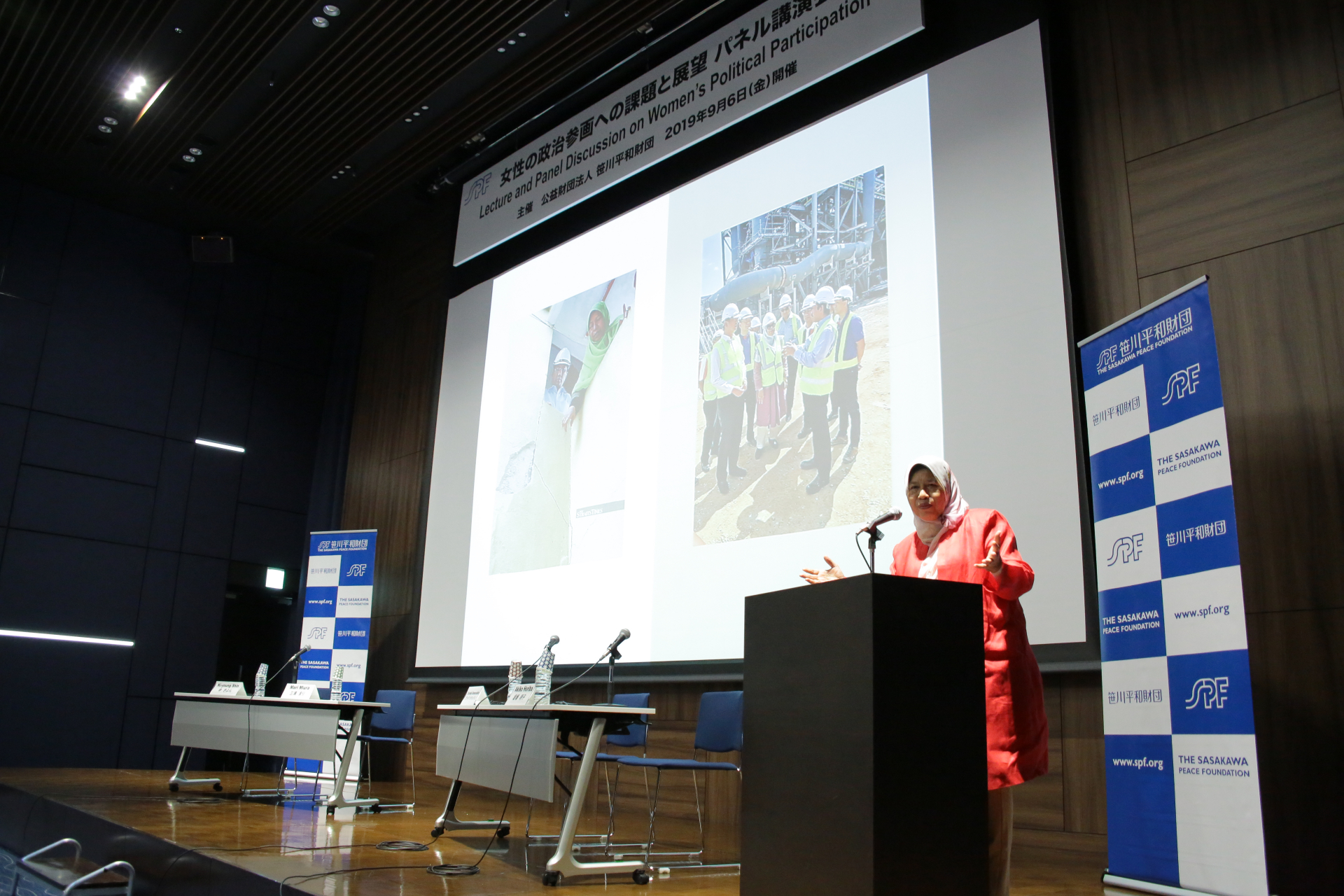I realized it’s not enough for me to be in the women’s wing. I have to strategize myself to be in the decision-making position, where my voice can be heard and can be considered.
Women leaders must also understand that not many women out there who are vocal, who dare to speak out, who dare to even fight with a man for that matter. There are many of them who are not like that, so they need to be empowered. They need to be given a chance. They need to be given the opportunity. And we must be the ones who tap their potential to give them the platform to show off their capability and to show what they can do for the country. We have to make inroads for them.
So, what is best? I happened to be in that political party, so I tried to develop the women's wing. It’s not easy being the opposition party. No film stars will join your party. No great businesswomen will join your party. No great civil servants will join your party because you are coming from the opposition, and it’s not easy to get the corporate women to join a political party. At one point of time, I myself was feeling that, “Hey, I don’t need this crap.” It’s not easy to be in politics, where you have to handle a lot of complaints and there are a lot of challenges with politicking, with male chauvinism, and so on and so forth. It’s not easy. At one point sometime in 2004, I was thinking that "I don’t need this crap. Maybe I should leave this struggle." Somehow, the women around me were motivating me and said, “No, we need you here. Please do not leave.” Then, I felt that probably there is something that is motivating me to hang on and I could see that the women there are in need of a leader to champion them.
Then, I tried to strategize myself. It’s not enough to be in the women’s wing because the women’s wing is just a wing, a missionary of the party, which the party uses for campaigning, to go out for election, to get to the grassroots, and to get the voters out. This was the women’s job. I think all of you would have noticed it, but when it came to selecting candidates, the women were being sidelined. It’s the men that are going to be the candidates and the men are going to become the honorable ones, not the women. So, then I realized it’s not enough for me to be in the women’s wing. I have to strategize myself to be in the decision-making position, where my voice can be heard and can be considered, can be taken as something that is important, and I can bring forward women’s needs and women’s participation in the party.
Next, I moved into the mainstream politics of the party, and I needed to become a division head. So, I think some of you maybe are familiar with the divisions. Within the national structure of the party, we have the division structure and the state structure. I knew that I had to take up this position to become a division head, so what do I do? I was very new in politics. I didn’t know many people. In fact, I came to the party alone. I didn’t have a background or expertise. I didn’t come with a background in NGOs. I came to the party alone. I was thinking about which division I should go to, and I went to the division where nobody wanted to contest, a division where the men are not too strong. I went there and I became the division head there, one of the earliest division heads in the country.
It’s important to be the division head because that's where the decisions are made and where the representation at the national level and the state level is going to be considered. So, I become a division head. In my division, the position was not designated as my party's seat. Because we are part of a coalition, certain seats are given to certain parties, party A-B-C-D, but this division head position was not available to become a candidate for my party.



